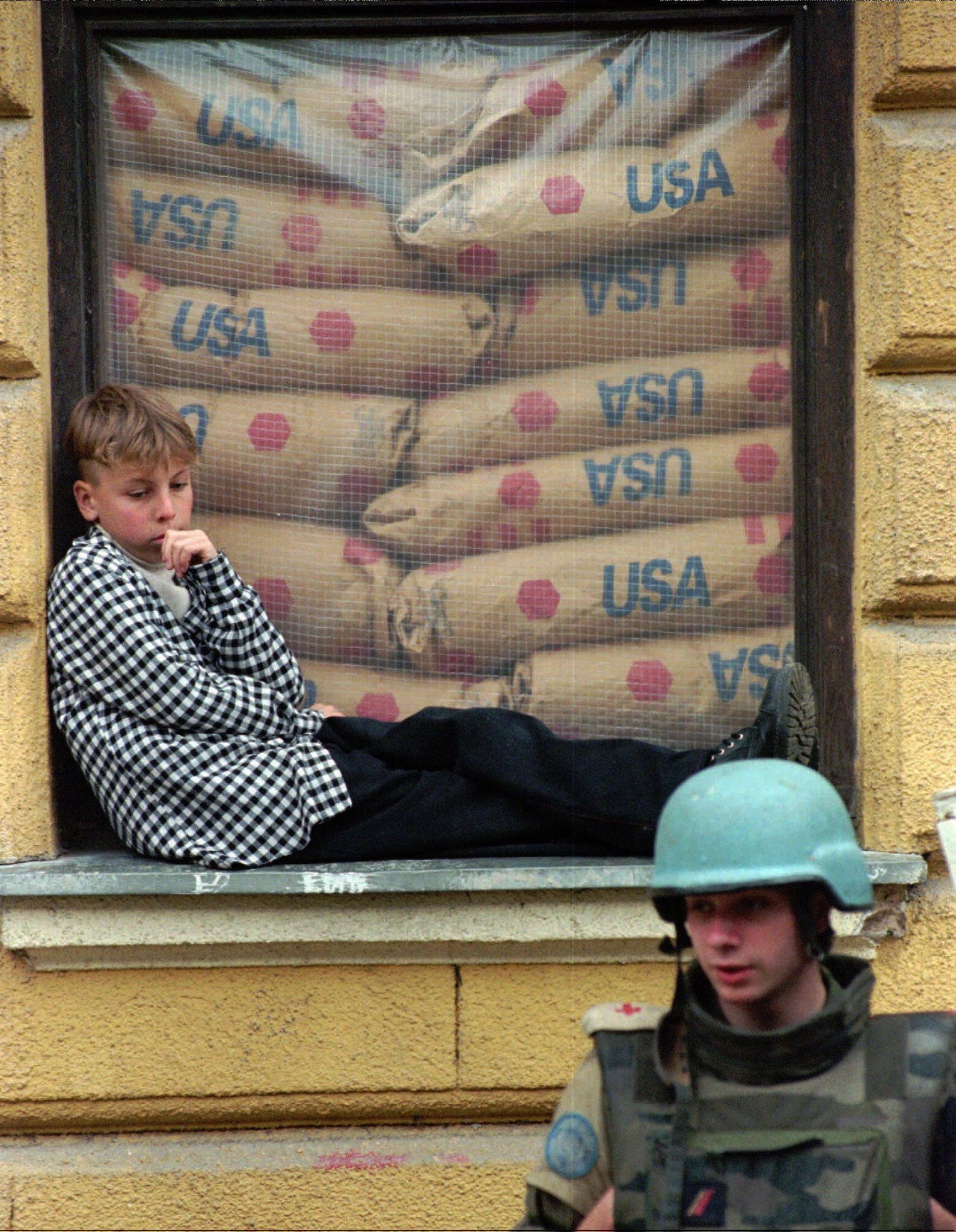The Book of My Lives, By Aleksandar Hemon
These beguiling essays show how, from Sarajevo to Chicago, a gifted exile told his story

In three volumes of stories and a novel, Aleksandar Hemon has woven fiction from life's happenstance: origins in Sarajevo, displacement, war close-up and remote, family, Ukrainian ancestry, Chicago, dead-end jobs, evil entwining with innocence.
Get money off this book at the Independent bookshop
Uprooted to the US in 1992, freighted with helpless rage over the destruction of his homeland, with "the steel ball of nostalgia grinding in his bowels", Hemon the writer found his subject in his bifurcated self: half a hapless buffoon (balked by simple New World routines) and half a tragic refugee (locked in penurious solitary with Old World demons). His books find ingenious solutions – comic, brutal and tender by turns – to the dilemmas of riven identity.
His stories seem to tell themselves, unreeling in verbal felicities that kiss the ear. A Congolese man wears "a scaphander Afro". Brassieres, drying, dangle from door handles like rabbit skins. Contagious energy flows from language that seems to be discovered in the act of composition. Where does he hail from, as a writer? All sorts of places, new and old. He adores Bruno Schulz and Danilo Kiš, yet the wrought density of their prose isn't much like Hemon's vernacular, which manages lightness along with word-perfection. His sheer gusto recalls another adoptive Chicagoan's: Saul Bellow married the soul-making grandeur of Russian literature with American high demotic.
The essays in The Book of My Lives are about the meanings of home. Spacious and full-hearted, they cover much the same biographical terrain as Hemon's fiction, until the last chapters break ground where fiction has no place. "The Lives of Others" bolts semi-academic terms skilfully onto childhood memories and the observation of his parents displaced in Canada, in order to make a case for complex identity. It is a manifesto for the right to otherness, by no means for "the neoliberal fantasy of multiculturalism", which envisages a world of loyalty to roots.
Several chapters evoke Bosnian normality before it was murdered in 1992. A key chapter relates the puppyish avant-garde exploits of Hemon and friends in the 1980s. When they organise a Nazi-themed cocktail party, parodying the jackbooted decadence portrayed in Yugoslav movies, hysterical denunciation follows. Blind to the incipience of real fascism, the political system was nurturing catastrophe.
Not that the rise of ethnic nationalism was easy to grasp. A chapter about Hemon's university mentor, Nikola Koljevi, expresses irreconcilable anger. As a Bosnian Serb leader with fluent English, Koljevi's disarming grin was much deployed with Western diplomats and journalists until his suicide after the war. "Racked with guilt", Hemon "unread books and poems I used to like, unlearning the way in which he had taught me to read them." The wrong Bosnians still feel guilty: it's almost axiomatic.
The later chapters reflect a relieved sense of entitlement to be where he is. Showing Chicago to a Bosnian friend, Hemon realises that "my immigrant interior had begun to merge with the American exterior." He notes moments of transcendence playing soccer in the park, and watching the rivers of light along Lake Shore Drive. His familiar wit and hangdog resilience combine beguilingly. Every page releases fireflies, hardly dimmer than in his fiction. Readers won't mind trading some stylistic candlepower for the chapters about Hemon's marriages and his baby daughter's illness. Home is also the place where a child can die. Confessional yet honourably restrained, these pages promise to be unforgettable.
Mark Thompson's book 'Birth Certificate: the Story of Danilo Kiš' is due in April from Cornell
Join our commenting forum
Join thought-provoking conversations, follow other Independent readers and see their replies
Comments